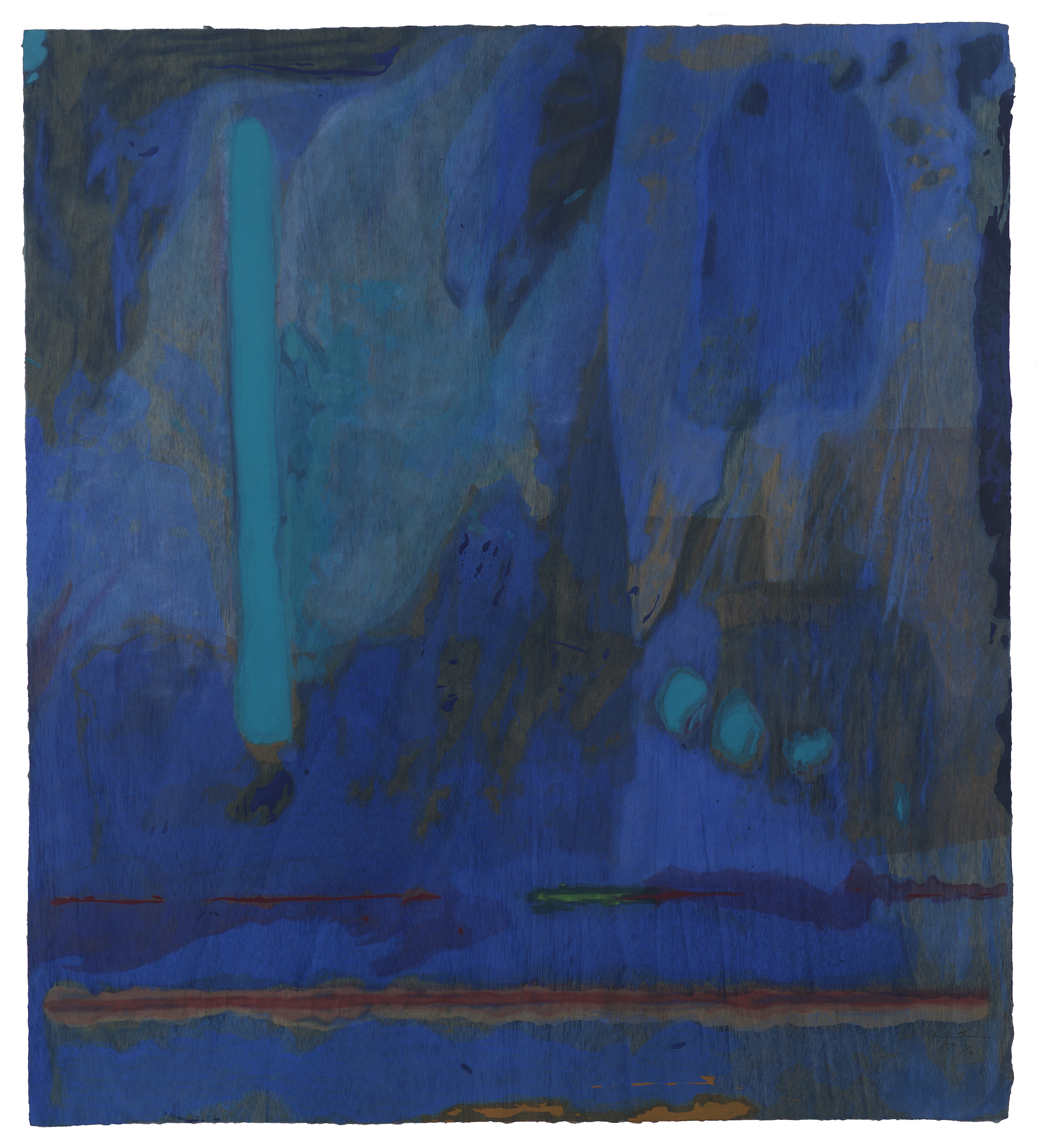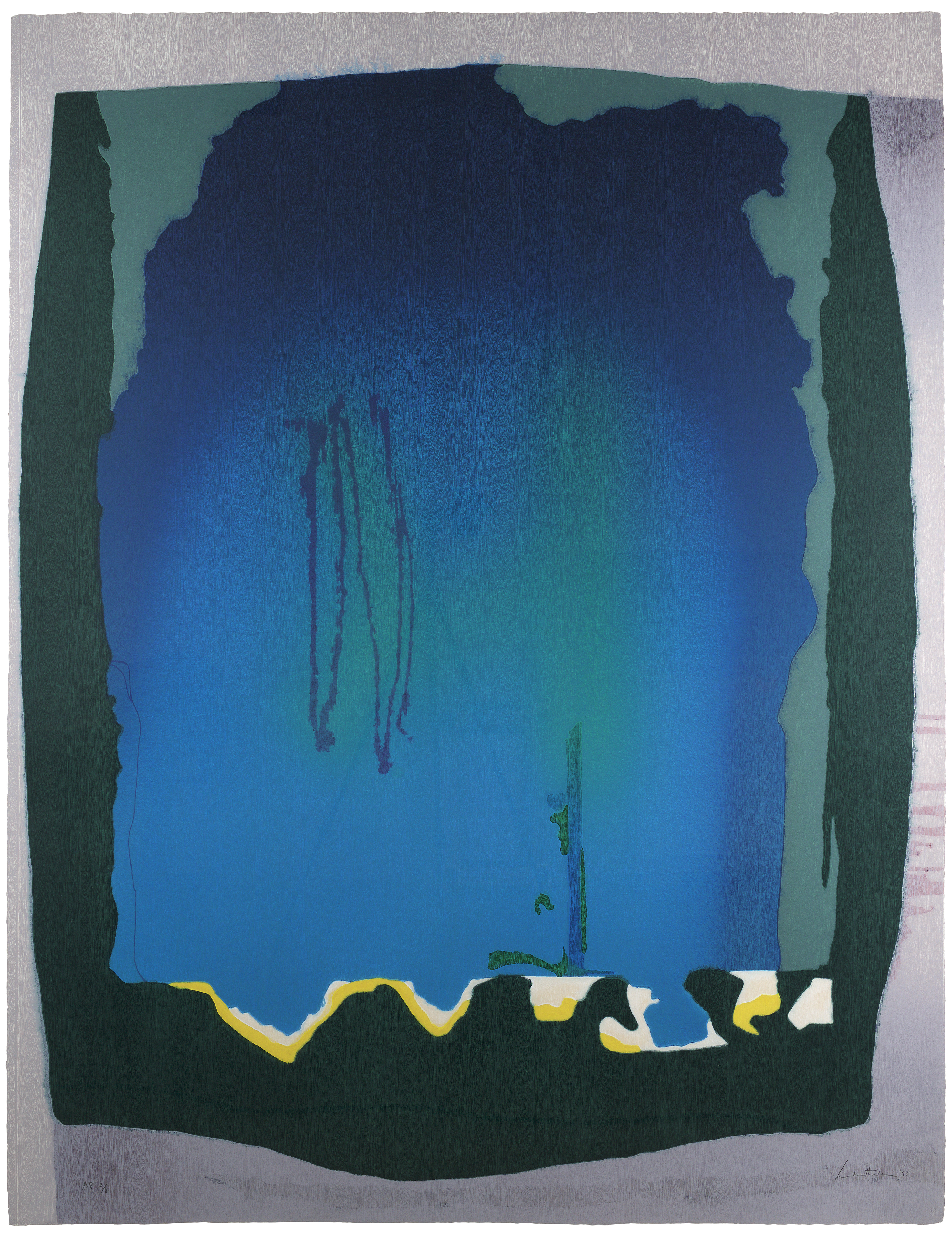Until April 18th, 2022, the Dulwich Picture Gallery will present the first major UK exhibition of woodcuts by the leading Abstract Expressionist, Helen Frankenthaler (1928–2011). Shining a light on the artist’s groundbreaking woodcuts, it will showcase works never shown before in the UK that reveal Frankenthaler as a creative force and a trailblazer of printmaking, who endlessly pushed the possibilities of the medium. We are very happy we can present her works to you in DailyArt, all thanks to the Dulwich Picture Gallery. <3
With their painterly quality, the Tales of Genji series of six prints captures the “born at once” sensibility that Frankenthaler was always chasing in her works. Using her famous soak-stain technique, she painted directly on plywood, creating guides for the workshop team who worked to replicate the pooling and layering of the paintings on wood in the prints.
Retaining this essence required a highly skilled team. Frankenthaler worked alongside master printmaker Kenneth Tyler, woodcut carver and printer Yasuyuki Shibata, assisted by Christopher Creyts and papermakers Tom Strianese and John Hutcheson to realize her vision. Together they experimented with absorbent paper, hydraulic presses, blocks that held paint, and those that repelled it. Frankenthaler’s printmaking collaborations invigorated her as an artist.
But going from the solitary practice of a painter to a team effort required careful thought. Through numerous collaborations she forged a dynamic give-and-take where she was actively involved in the printmaking process whilst allowing others to bring their skills and innovation to achieve her creative vision. The title Tales of Genji comes from the name of a Japanese story by Murasaki Shikibu published in 1022 that charts the ups and downs of a fictional prince, particularly those of a romantic kind. It has been interpreted many times including most recently in manga. Frankenthaler’s visual homage to this work, and the color palette used to create thinly veiled layers, could be abstracted from a 12th-century scroll of the story, the Genji Monogatari Emaki, which is one of the earliest surviving editions.
P.S. Find out more about Helen Frankenthaler and Abstract Expressionism here. :)
P.P.S. We always try to promote women artists as much as we can; here you can check our notebook with the paintings of the forgotten Women Artists.


 Helen Frankenthaler
Helen Frankenthaler